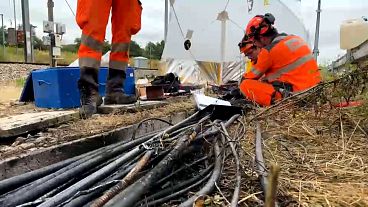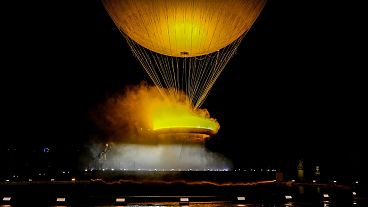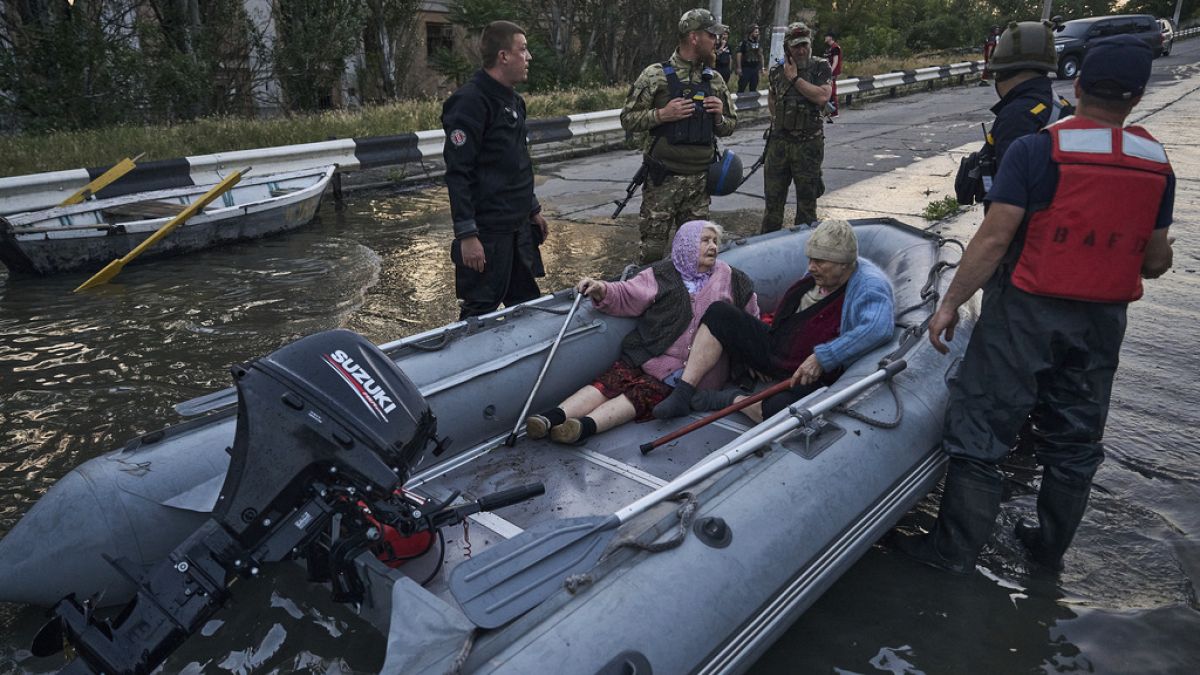The European Union has forcefully condemned the attack on the Nova Kakhovka dam, calling it an "act against humanity" and warning it may constitute a war crime under international law.
The destruction of the Soviet-era dam, which is located in the Russian-controlled part of southern Ukraine, has forced the evacuation of thousands of people in the Kherson region who live in zones at risk of being flooded.
It was not immediately clear who was responsible for the explosion: Kyiv blamed Russian forces, while Moscow said it was "sabotage" carried out by Ukraine.
"Russia's attacks against Ukrainian civilian critical infrastructure reached an unprecedented level today," Josep Borrell, the EU's foreign policy chief, and Janez Lenarčič, European Commissioner for crisis management, said in a joint reaction statement.
"The European Union condemns this attack in the strongest possible terms. It represents a new dimension of Russian atrocities and may constitute a violation of international law, notably international humanitarian law."
Borrell and Lenarčič warned the attack could have a negative impact on the Zaporizhzhia nuclear power plant, which relies on the Kakhovka reservoir to access cooling water.
The nuclear plant is the largest of its kind in Europe and has been the focus of military tensions since Russia launched the full-scale invasion.
The International Atomic Energy Agency (IEAE) said it was "closely" monitoring the situation on the ground and noted there was "no immediate nuclear safety risk."
"Attacks on critical civilian infrastructure may amount to war crimes," Borrell and Lenarčič added.
During a press briefing on Tuesday afternoon, Peter Stano, Borrell's spokesperson, described the attack as "horrific" and "barbaric."
Across Europe, more critical reactions poured in as the extent of the devastation became clearer.
"It is the children, women (and) men of Ukraine who will suffer the consequences of the terrible destruction of the Nova Kakhovka hydroelectric power plant," said Roberta Metsola, president of the European Parliament.
"This is an act against humanity. A war crime which we cannot leave unanswered."
NATO Secretary General Jens Stoltenberg called it an "outrageous act, which demonstrates once again the brutality of Russia's war."
"Russia will have to pay for the war crimes committed in Ukraine," said Ursula von der Leyen, president of the European Commission.
Von der Leyen added her executive had activated the civil protection mechanism to deliver emergency assistance to Ukraine.
"Terrorist state Russia has now turned water into a weapon. Destroying #NovaKakhovka dam is a war crime affecting countless civilians and bringing ecocide and mass destruction," said Kaja Kallas, Estonia's prime minister.
Her Irish counterpart, Leo Varadkar, said the strike showed a "reckless indifference to human suffering and environmental consequences."
Spanish Prime Minister Pedro Sánchez, Czech Prime Minister Petr Fiala, Croatian Prime Minister Andrej Plenković, Danish Prime Minister Mette Frederiksen, Romanian President Klaus Iohannis and Lithuanian President Gitanas Nausėda also expressed their shock and condemnation, making references to international law and potential war crimes.
Charles Michel, the president of the European Council, said he would raise the issue at the next meeting of EU leaders in Brussels, scheduled to take place later this month.
The Geneva Conventions compel warring parties to distinguish between "civilian objects" and "military objectives," and forbids any attack on infrastructure that is used by civilians to go about their daily lives.












